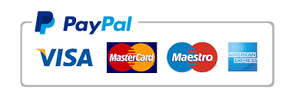How to Get an ISBN for Your Book
How to get an ISBN for your book is either free via a self-publishing service or bought through an ISBN agency, such as Nielsen (UK) or Bowker (US), in blocks of 1, 10 or 100.
This article discusses all you need to know about ISBNs when publishing your book, such as what is an ISBN, when you need these identifiers, the limitations of a free ISBN, and more.
This article discusses all you need to know about ISBNs when publishing your book, such as what is an ISBN, when you need these identifiers, the limitations of a free ISBN, and more.
What is an ISBN?
An ISBN (International Standard Book Number) is an identifier issued to publishers (Amazon, Smashwords, etc.) or authors buying from their local ISBN agency to self-publish. It is required worldwide for books available to the public. This individual reference number is used for ordering systems, listings, sales accounts, stock controls and marketing purposes.
As every number is unique to each published work, whether it’s an ebook, printed version or audio book, it enables the identification of specific versions through both online and physical outlets.
Once an ISBN is assigned, it cannot be reused. You must use a new ISBN if the content or title changes, or if you produce another format of the same title. So if you produce an ebook, you will need another ISBN for a paperback version. If you have a paperback version, you will need to allocate another ISBN if you produce a hardback.
ISBNs are allocated in the country the book is published, but they can be used internationally. You don’t need a separate ISBN to distribute your material in overseas markets.
As well as a unique identifier, the ISBN is used to produce the barcode (EAN barcode) if you are producing physical copies (paperback/hardback). All you need to produce the barcode is the ISBN code. Whether you self-publish or use traditional publishing, your barcode will be generated from this 13-digit number.
The ISBN is displayed on a book’s copyright page. On printed books it is on the back cover as part of the barcode.
As every number is unique to each published work, whether it’s an ebook, printed version or audio book, it enables the identification of specific versions through both online and physical outlets.
Once an ISBN is assigned, it cannot be reused. You must use a new ISBN if the content or title changes, or if you produce another format of the same title. So if you produce an ebook, you will need another ISBN for a paperback version. If you have a paperback version, you will need to allocate another ISBN if you produce a hardback.
ISBNs are allocated in the country the book is published, but they can be used internationally. You don’t need a separate ISBN to distribute your material in overseas markets.
As well as a unique identifier, the ISBN is used to produce the barcode (EAN barcode) if you are producing physical copies (paperback/hardback). All you need to produce the barcode is the ISBN code. Whether you self-publish or use traditional publishing, your barcode will be generated from this 13-digit number.
The ISBN is displayed on a book’s copyright page. On printed books it is on the back cover as part of the barcode.
How to Read an ISBN
|
The ISBN identifies each title, edition, format and language of a publication, and connects to a specific publisher. The 13-digit ISBN, e.g. 978-1-23-123456-0 can be broken down into five parts:
|
When Do I Need an ISBN?
- When you produce a publication that you wish to sell online, in stores, libraries, or with wholesalers or other distribution channels.
- If you make substantial changes to produce a revised edition. Even if the subsequent edition has the same title as the first, it has a different ISBN because it is considered a different product.
- If you are offering your book in different formats and through different retailers, such as a paperback version in a bookstore, an Amazon Kindle ebook and also an ebook through Smaswords, you will need a different ISBN for each.
- If you make your material available in different languages, each of these versions will need an ISBN.
- If the publisher changes, the new publisher must assign one of their own ISBNs to the new publication. So bear this in mind if you self-publish with Amazon and then decide to sell through Barnes & Noble in the future, for example.
When is an ISBN Not Required?
- You won’t need to buy an ISBN if you are selling your ebook or print-on-demand (POD) book through many of the self-publishing and/or on-demand services, as these are usually issued for free. (See below for more information on free ISBNs.)
- If you are producing a publication for private use or distribution such as internal business training manuals or giveaways at seminars.
- A price change for a title which already has an ISBN.
- A reprint where there are no substantial changes. Making amendments such as correcting typos or a new book cover would not require a new ISBN.
- For a promotional or marketing campaign when there are no changes to the text, format or binding.
- ISBNs are not required for magazines, academic journals or other periodicals. Unless a single issue of a periodical is being sold as a book, then it can be assigned an ISBN.
How to Get an ISBN
- Authors can be issued with either a free or discounted ISBN depending on which self-publishing or on-demand service they use to self-publish their book. Amazon or Smashwords are free, whereas other companies offer a discount. See my Self-Publishing Resources page for more information on companies providing self-publishing services.
- The ISBN is allocated when an author uploads their book onto a self-publishing platform as part of the publishing process to make their book available for sale.
- This ISBN is only applicable for that particular publisher, so this option is ideal if the author is happy to sell their book through one publisher. See more about free ISBNs below.
- ISBNs can also be bought through an ISBN agency, such as Nielsen (UK) or Bowker (US), in blocks of 1 (least cost-effective), 10, 100 or 1000 (!) through their local ISBN agency. This is useful for authors who want to publish on multiple platforms or sell through both online and physical retailers, as you need an ISBN for each.
- To buy an ISBN in the UK is online through the agency Nielsen. To purchase an ISBN in the US is online through the agency Bowker.
- This is a very straightforward process. You just select the amount you wish to buy and pay by debit or credit card. Please note that refunds aren't offered.
- There are over 160 ISBN agencies worldwide, and each agency is appointed as the exclusive agent responsible for assigning ISBNs to publishers residing in their country or geographic location.
How Many ISBNs Do I Need?
- If you only publish one book in ebook format, for example, you only need one ISBN. If you have an ebook, paperback and hardback, then you will need one for each format.
- If you publish through more than one self-publishing platform or sell through both online and bookstores, you need an ISBN for each retailer.
- If you buy more than you need initially (because you have bought a block), they stay valid and don’t expire.
ISBN Cost
- In the UK, one ISBN costs £89.00. A block of 10 costs £164. A block of 100 costs £369.
- In the US, one ISBN costs $125. A block of 10 costs $295. A of 100 costs $575.
For a full list of agencies worldwide and their charges, check the International ISBN Agency.
How to Get an ISBN Number for Free
Many self-publishing platforms and print-on-demand services such as Smashwords, Lulu, Barnes & Noble, etc. provide free ISBNs, so you don’t need to purchase one separately.
Amazon KDP provide an ASIN (Amazon Standard Identification Number) code for ebooks (see below for more information) and an ISBN for paperbacks, which are free.
Amazon KDP provide an ASIN (Amazon Standard Identification Number) code for ebooks (see below for more information) and an ISBN for paperbacks, which are free.
Limitations of a Free ISBN
The main limitation when using a free ISBN through self-publishing companies is that it cannot be transferred to sell the same book through another publisher, self-publishing service or retailer such as a physical bookstore.
So if you choose to self-publish on Amazon, you won’t be able to use the free ASIN (ebook) or ISBN (paperback) your book is assigned to then publish through Smashwords or sell at Waterstones. This applies whether it’s an ebook or print version.
The publisher owns the distribution rights associated with the ISBN identifier, not the author.
If you want to be in control of publishing your book and where it is available to buy, and you can afford the extra cost, you might think about purchasing your own ISBNs.
Using multiple ISBNs for your book also means that sales are recorded under each ISBN separately; therefore, not a total sum for your publication as a whole. Whether this is of major concern is a question for each individual author. The answer in most cases will probably be no.
So if you choose to self-publish on Amazon, you won’t be able to use the free ASIN (ebook) or ISBN (paperback) your book is assigned to then publish through Smashwords or sell at Waterstones. This applies whether it’s an ebook or print version.
The publisher owns the distribution rights associated with the ISBN identifier, not the author.
If you want to be in control of publishing your book and where it is available to buy, and you can afford the extra cost, you might think about purchasing your own ISBNs.
Using multiple ISBNs for your book also means that sales are recorded under each ISBN separately; therefore, not a total sum for your publication as a whole. Whether this is of major concern is a question for each individual author. The answer in most cases will probably be no.
Benefits of Free ISBN
Apart from the fact that it is FREE, there are no limitations when using a ‘free’ ISBN with regards to book titles ranking on search engine results, as they won't be looked at any differently from books published with an ISBN purchased through an ISBN agency.
Also, there is no compromise over ‘control’ of the book’s text and content when using a free ISBN.
You don’t need to think about buying an ISBN if you go from one free IBSN distributor to another. So, if you publish an ebook through Amazon and then in the future also sell through Smashwords (who distribute to everyone apart from Amazon), you will have an ASIN (free) from Amazon and an ISBN (free) from Smashwords.
If you only want to sell Kindle ebooks with no plans to publish or sell this ebook through another outlet, you don’t need to consider buying an ISBN.
If you only want to sell print books via Barnes & Noble with no plans to sell this printed version elsewhere, you don’t need to look into buying your own ISBN.
Also, there is no compromise over ‘control’ of the book’s text and content when using a free ISBN.
You don’t need to think about buying an ISBN if you go from one free IBSN distributor to another. So, if you publish an ebook through Amazon and then in the future also sell through Smashwords (who distribute to everyone apart from Amazon), you will have an ASIN (free) from Amazon and an ISBN (free) from Smashwords.
If you only want to sell Kindle ebooks with no plans to publish or sell this ebook through another outlet, you don’t need to consider buying an ISBN.
If you only want to sell print books via Barnes & Noble with no plans to sell this printed version elsewhere, you don’t need to look into buying your own ISBN.
Amazon ASIN Number
Amazon have their own numbering system called ASIN (Amazon Standard Identification Number), a 10-digit identifier.
When you self-publish your book on Amazon Kindle Direct Publishing (KDP) as an ebook, you will be allocated an ASIN to identify and track the sales of your book. So, you do not need to buy an ISBN to self-publish an ebook on Amazon. But you will need an ISBN if you want to publish your ebook through another publisher or sell through other retailers. This can either be through another free or discounted ISBN issuer or bought via your local ISBN agency.
But if you already have an ISBN (because you've previously bought a block) you can use this as long as it is for ebook publications only.
Also, if you would like to produce print versions to sell on Amazon, you will need an ISBN. If publishing your paperback via KDP (previously CreateSpace), you will be provided with a free ISBN. You can find out more about this process here.
When you self-publish your book on Amazon Kindle Direct Publishing (KDP) as an ebook, you will be allocated an ASIN to identify and track the sales of your book. So, you do not need to buy an ISBN to self-publish an ebook on Amazon. But you will need an ISBN if you want to publish your ebook through another publisher or sell through other retailers. This can either be through another free or discounted ISBN issuer or bought via your local ISBN agency.
But if you already have an ISBN (because you've previously bought a block) you can use this as long as it is for ebook publications only.
Also, if you would like to produce print versions to sell on Amazon, you will need an ISBN. If publishing your paperback via KDP (previously CreateSpace), you will be provided with a free ISBN. You can find out more about this process here.
Is ISBN Copyright?
Using a self-publishing company's ISBN for your book doesn’t mean they have ownership or copyright of your work, because you still have complete control over your content.
Also, an ISBN doesn’t provide legal or copyright protection. It’s common for many different books to have the same title, so it can be difficult to enforce exclusivity or protect by copyright — although, I wouldn’t advocate using the same title used by a multimillion selling author such as J.K. Rowling.
For reference, when you publish from either the UK or US, the copyright protection on any original material automatically comes into force as soon as it is created, and applies for 70 years after your death.
The only reason to ‘register copyright’ is if you want insurance against the theft of your intellectual property because you consider it ‘high risk’. Also, the copyright would need to be registered before you could bring a lawsuit against a third party. But the chances of this are pretty slim, as it is frowned upon in the industry to ‘steal’ other people's works. The automatic copyright is usually enough protection for most authors.
If you would like to check if your book's content has been used illegally, check out Copyright Hero, an anti-piracy tool to detect copyright infringment of your material.
Also, an ISBN doesn’t provide legal or copyright protection. It’s common for many different books to have the same title, so it can be difficult to enforce exclusivity or protect by copyright — although, I wouldn’t advocate using the same title used by a multimillion selling author such as J.K. Rowling.
For reference, when you publish from either the UK or US, the copyright protection on any original material automatically comes into force as soon as it is created, and applies for 70 years after your death.
The only reason to ‘register copyright’ is if you want insurance against the theft of your intellectual property because you consider it ‘high risk’. Also, the copyright would need to be registered before you could bring a lawsuit against a third party. But the chances of this are pretty slim, as it is frowned upon in the industry to ‘steal’ other people's works. The automatic copyright is usually enough protection for most authors.
If you would like to check if your book's content has been used illegally, check out Copyright Hero, an anti-piracy tool to detect copyright infringment of your material.
In Summary
To summarise, how to get an ISBN involves the following:
- Authors can obtain a free or discounted ISBN via a self-publishing or print-on-demand service.
- The ISBN is allocated when an author uploads their book onto a self-publishing platform as part of the publishing process to make their book available for sale.
- Or ISBNs can be bought through an ISBN agency, such as Nielsen (UK) or Bowker (US), in blocks of 1, 10 or 100.
- Buying through an agency is a very straightforward process. You just select the amount you wish to buy and pay by debit or credit card.
Book Editing Services is here to help you every step of the way. Whether you need a Proofreading Service, Copy-editing Service or an Ebook Formatting Service, my professional editorial services can help to ensure your finalised and published book becomes a reality. Please contact me using the link below to discuss your project, request a no-obligation quote or to check availability.
Book Editing Services is here to help you every step of the way. Whether you need a Proofreading Service, Copy-editing Service or an Ebook Formatting Service, my professional editorial services can help to ensure your finalised and published book becomes a reality. Please contact me using the link below to discuss your project, request a no-obligation quote or to check availability.
Contact Book Editing Services
If you would like to get in touch, let me know about your book and which service you're interested in by using the secure Contact Form. You can also use the form to discuss your editorial requirements, request a no-obligation quote or check availability.
Please read my Terms and Conditions if you would like to use my editorial services so you are familiar with how I work and the requirements of both parties. I look forward to hearing from you.
Please read my Terms and Conditions if you would like to use my editorial services so you are familiar with how I work and the requirements of both parties. I look forward to hearing from you.








